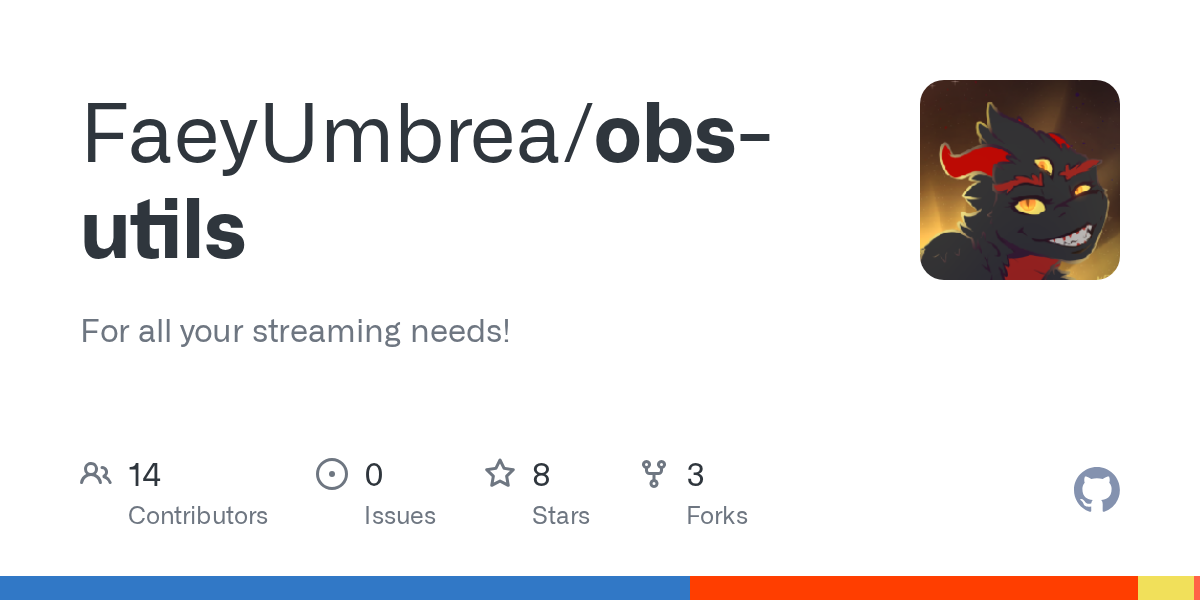Svelte error when instantiating a component that wasn't bundled in the same module
as discussed in the lounge, you can find the load point here: https://github.com/FaeyUmbrea/obs-utils/blob/main/src/svelte/OverlayRenderer.svelte
Ignore the fact that window.obsutils.singleInstanceOverlays is a Set and doesn't work with #each, that is fixed in my local copy of the file.
The issue is that what ever Classes are in the singleInstanceOverlays Set implode in the init() function call.
Ignore the fact that window.obsutils.singleInstanceOverlays is a Set and doesn't work with #each, that is fixed in my local copy of the file.
The issue is that what ever Classes are in the singleInstanceOverlays Set implode in the init() function call.
GitHub
For all your streaming needs! Contribute to FaeyUmbrea/obs-utils development by creating an account on GitHub.
